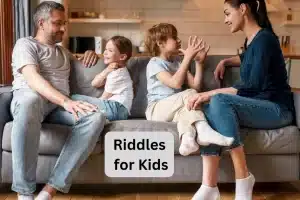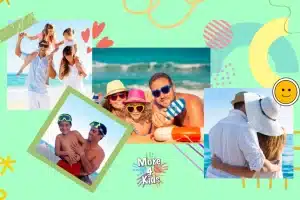
No parent wants to see their teen hurt, abused or manipulated. It our basest instincts to step in and protect our children from harm. However, we can not protect our children from every single hurt and there will be times when you simply aren’t around to shield your child. The best thing that you can do is actually a two prong approach. The first prong is keeping an open, honest and close relationship with your child. Let them know that they can talk to you about anything. The second prong is teaching your child how to handle harmful situations, instilling the confidence to recognize when they are being mistreated and the strength to walk away.
Destructive relationships come in many different shapes and sizes. Sometimes the destructive element is very apparent, other times it can barely be detected. The faces of the destructive relationship can be equally obscure. The polite, soft spoken, church going young man dating your daughter could be an abusive, angry tyrant behind closed doors. The sweet, pretty cheerleader that your son is dating may be horrible critical and verbally abusive when no one is around to hear.
The truth is, you just don’t know. You can’t follow your teen everywhere, can’t shadow them constantly; that is why it is so very important to keep open communications between you and your child. When both you and your child are able to recognize the signs of a destructive relationship, as well as when it can turn harmful, then together you can tackle the problem and come out stronger, smarter and wiser as a result.
I was in two consecutive brutally abusive relationships for a total of 11 years. From an abuse victim standpoint, I can assure you, first and foremost, that telling your teen (or anyone in an abusive situation) to leave their abuser will not work. The components of a destructive or abusive relationship are so complex, so intricate. The abuser has woven a web over the victim, using words, physical abuse, threats or any combination of these. The victim becomes an emotional hostage to the abuser. The longer it goes on, the more ingrained the dependency becomes. The less of a support system the victim has outside of the relationship, the more they turn to their abuser.
In short, when you are trying to help someone who is in an abusive relationship, you are walking a very tenuous tightrope. One word can send them back to their abuser’s side, but love and patience (unconditional love and never-ending patience) can bring them back. The important thing is that you never give up. Don’t make yourself ill with worry or put yourself in harm’s way, but always be there for your teen. They may come to you and then return to their abuser several times before they finally stay away, but stay with it, follow these tips and don’t give up. It will likely require the most incredible strength you have ever exerted, more than you knew you had, but you can do it.
Now I will tell you ways to help your teen, straight from someone who has been there.
Let yourself be an Example
Table of Contents
If you don’t want your teen to be in a destructive or abusive relationship, you need to set an example. You may say, “My situation is different, my husband just yells at me and puts me down. My daughter’s boyfriend hits her.” The situations are not different. It may look a little different, but the effects are the same. Bottom line, if you are showing your child that it is OK for you to be treated badly ” in ANY way” then they are more likely to allow themselves to be treated badly as well. Verbal abuse, vicious mind games, physical abuse and threats of harm are all types of abuse. They are intended to control, intimidate and scare the victim.
Know the Different Types of Abuse
Abuse has many faces. Of course we are probably most familiar with physical abuse, but emotional abuse, verbal abuse, cruel mind games and threatening harm are all forms of abuse. If it makes you feel as if you are not valued, it hurts (physically or emotionally) or makes you feel ugly, stupid or worthless, it most likely qualifies as some sort of abuse. A girlfriend who is constantly putting down her boyfriend, calling him names and making fun of him in front of people is abusive. A boyfriend who cheats on his girlfriend over and over again, yet convinces her that he loves her or that she couldn’t find anyone else who would be with her is abusive.
Know the signs of Abuse
Abuse victims become experts at hiding the effects of abuse. Physical abusers will become adept at inflicting injuries where they can’t be seen, they are covered by clothing or hair (my ex used to pinch and twist the back of my neck when we were in public to keep me in line. I always had terrible bruises back there but my hair covered them). The emotional and verbal abuse is more difficult to detect, but there are some tell-tale signs that will tip you off.
These should be huge red flags:
- Depression, hopelessness, anxiety, lack of confidence, unusually quiet, feelings of worthlessness
- Your child is not the person you know, the spark seems to be gone
- Withdrawal from family, friends and support system
- Marked change in behavior such as dressing a certain way, becoming quieter, change in appearance (a girl who wore make up now does not wear any)
Dependence on their boyfriend/girlfriend. Every decision they make is hinged on whether or not that person will like it or approve. They are very anxious to please that person. - Fear when they may have done something to upset or anger their boyfriend/girlfriend
- Marked decrease in self esteem, develop a poor body image, becomes very self critical
- The boyfriend/girlfriend humiliates or criticizes your child in front of others
- Your child tells you that the boyfriend/girlfriend forces or pressures them to do sexual acts
- The boyfriend/girlfriend seems very controlling, ordering your child around, makes all the decisions, controls who they can and can not be friends with, where they can go, what they can do
- You child talks about the boyfriend’s/girlfriend’s jealousy, possessiveness or bad temper
- You child has injuries like bumps, bruises, broken bones, etc. and gives no explanation or an unlikely explanation
- Your child’s friends don’t like the boyfriend/girlfriend (this is actually a very telling sign – your child will probably be more likely to confide in a friend before they confide in you)
- When questioned, your child vehemently denies any abuse or ill treatment, refuses to talk about it or tries to change the subject
After a breakup, former boyfriend/girlfriend calls, texts, shows up at the house, shows up at places where your child goes and, in general, harasses your child.
You may see many of these things, or you may see a few. However, when you do notice things, even subtle changes, it is time to take action.
Talk but don’t Push
You can talk, gently approach the topic, but don’t push. This is not a time for confrontation or over the top emotions. Express concern, but try to keep your emotions in check. If your teen sees that you are upset or angry, they are likely to withdraw. If your teen is reluctant to talk about the relationship or adamantly denies it, just listen and observe. Use the time to watch your child. Look for averted eyes, nervous gestures (wringing hands, hiding the hands, playing with their hair) and attempts to either defend the person, take the blame for problems or deny anything is wrong. If they won’t talk, you will have to rely on what you observe in their reaction and see if any red flags are raised.
Don’t Judge
The worst thing you can do is judge your child, the relationship or the boyfriend/girlfriend. If you go off, ranting and raving, making threats and berating your child for being with someone like that, you will only succeed in having your child retreat further from you. Instead, adopt as much of a poker face as possible, practice deep breathing to keep yourself calm and listen. The less emotion your show, the less shock or anger, the more likely your teen is to reveal more of what is going on. Speak quietly and slowly, stay calm and show that you are actively listening.
Don’t Say “Leave!”
They say that the forbidden fruit is always sweeter and that is true even when you are with someone is using you like a punching bag, either physically or emotionally. You can’t just say “Leave that person” because 1) they have to make up their own mind and want to have some control in their lives, 2) they probably feel that the abuse is their fault or that it isn’t abuse (this is a classic sign of emotional abuse ? the abuser convinces the victim that they are crazy or that the treatment isn’t abusive), 3) the forbidden love is romantic and exciting (think Romeo and Juliet), 4) they feel dependent upon the boyfriend/girlfriend and 5) they feel like they can’t do any better.
You do have a responsibility to protect your child from harm, but this type of situation calls for some careful movement. You say leave and you have a child who will either draw closer to their abuser, or a child who will be climbing out of their window at night, sneaking around to see the forbidden person. Tread softly and ask guiding questions such as “Do you think it is right for someone to do that to someone they say they love?” “If you love someone, do you think you would protect them more or hurt them?” “What if you found out that (name a friend, parent, child) was being (describe the treatment that you know is occurring in the relationship in neutral terms not in the context of your child). What would you do? How would you feel? What would you say to them?”
You may not see an immediate difference, but when you gently probe in this manner, you are opening a window. You are making them start to think. The abuse victim’s world is very small. They are in a fishbowl, looking out at the world. When you apply their situation to someone outside of that fishbowl, you make it more real and less normal. They can begin to see that it isn’t right and it isn’t good. This won’t necessarily help the self esteem factors that accompany abuse, but it is a start.
Be There
It is important that you let your child know that you aren’t judging them, that you love them unconditionally. Be there for your child and never, ever give up. If they are in an abusive relationship, they have, to some degree, already given up. They have given up on themselves, on happiness, on life. If you give up on them, what is left? Nothing. Your hope, your support, your love may be all that they have and even if they don’t tell you or show you, that hope, love and support may mean the world to them. It may be the thread that is keeping them in this world. One day it may make a difference that you will see, but I assure you, if they know they have your love and support it is already making a difference to them.
Call in Reinforcements
Your child’s friends can make a huge difference and strongly influence them. Enlist the aid of one or several of your child’s friends. Set some ground rules before you all get together, but involve them. Now, this does not mean that you blab your child’s personal business to all of their friends, but most likely a close friend is already aware of the abuse.
Prevention Starts Early, but it is NEVER too Late
Instilling confidence in your teen is one of the best ways you can prevent them from getting into an abusive relationship. Set a positive example by removing yourself from unhealthy, destructive or abusive relationships and focusing on positive, healthy ones. Set very specific boundaries early on that will help your child distinguish between abusive behaviors and non abusive behaviors.
Encourage your child to build a strong support system early on that consists of friends, parents, teachers, siblings, family members and other people they can trust. Encourage them to get involved in school activities, church activities and activities in their community. The better they feel about themselves and the stronger their support system, the less likely they are to become trapped in an abusive relationship; and if they do get in a destructive relationship, they will be much more likely to get out much earlier.
Support is EVERYTHING
My daughter had a boyfriend who was extremely critical of her, he was jealous and controlling, but I knew nothing of that. What I did notice is that my daughter seemed to be moving away from herself. Normally very smiley and happy, she didn’t smile so much, the spark went out. She became quieter and less talkative. The signs were very subtle, but I picked up on them and after a little general discussion, she began to tell me what he was doing. We called her friend and the three of us sat up one night, talking about what he was doing, what she could do, what she deserved and all of her good qualities. The following day, she asked both of us to be with her while she had him come over. She broke up with him right there. She hurt, but her friend, her brother and I were there for her.
Know the Reasons that Victims Return to Their Abusers
- Loneliness
- Economic Factors
- They feel that they can’t get anything else
- They feel they don’t deserve any better
- They are dependent upon their abuser for love, support, acceptance, guidance
Know when to get the Law Involved
If you feel that your child is in physical danger you should not hesitate to contact the police. You may try to talk to the boyfriend’s/girlfriend’s parents, but don’t hang your hopes on that. Also know that it could make things worse. The parents are likely to side with their child and the child is likely to become angry and may take things out on your teen. However, if the boyfriend/girlfriend is hanging around your house or refuses to leave your property, you can have them picked up for trespassing. If you feel that things are really out of hand and you fear harm in any way, then talk to the police and find out what the laws are in your state to protect your child and your family from harm.
There are no easy solutions, no magic bullets that will end your teen’s abusive, destructive relationship. But know that your support and love will go a long way in helping them escape. Always love them, always be there for them and never, ever give up.
Biography
Stephanie Partridge is a freelance writer and photographer as well as a FOIA analyst for a federal agency in Washington, D.C. She is a single mom to Jeffery, 19; Micah Elizabeth, 17 and Benjamin, 15. She is also the author of the ebook, “Diet is a Dirty Word.”
No part of this article may be copied or reproduced in any form without the express permission of More4Kids Inc © 2009 All Rights Reserved











Thankyou , for sharing with us “Helping your teenager escape an abusive relationship”, my daughter is in an abusive relationship for 8 month’s, and I have been searching the internet for way’s to help her, there been some help, but your article has helped so much !! Her boyfriend has taken her away from us 1500 miles and I am so worried. My daughter ring’s everyday, but she’s changed, she doesn’t have a life she work’s and stay’s with her boyfriend all the time and does think’s he like’s to do. This article will help me alot to getting her home. Thankyou from the bottom of my heart!
This is in deed very helpful. My teenage girl is in an abusive relationship and she is hiding it. I am not able to get her to talk but I am giving her unconditional love and wait for her to turn back.